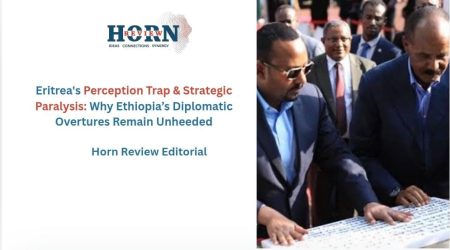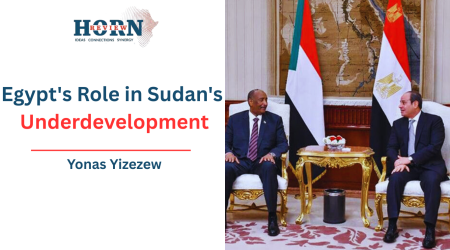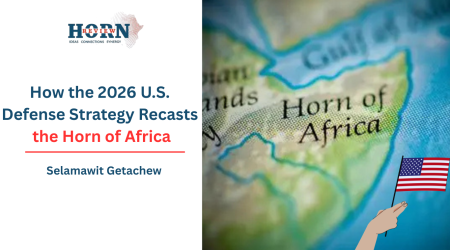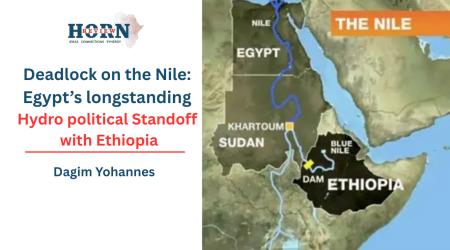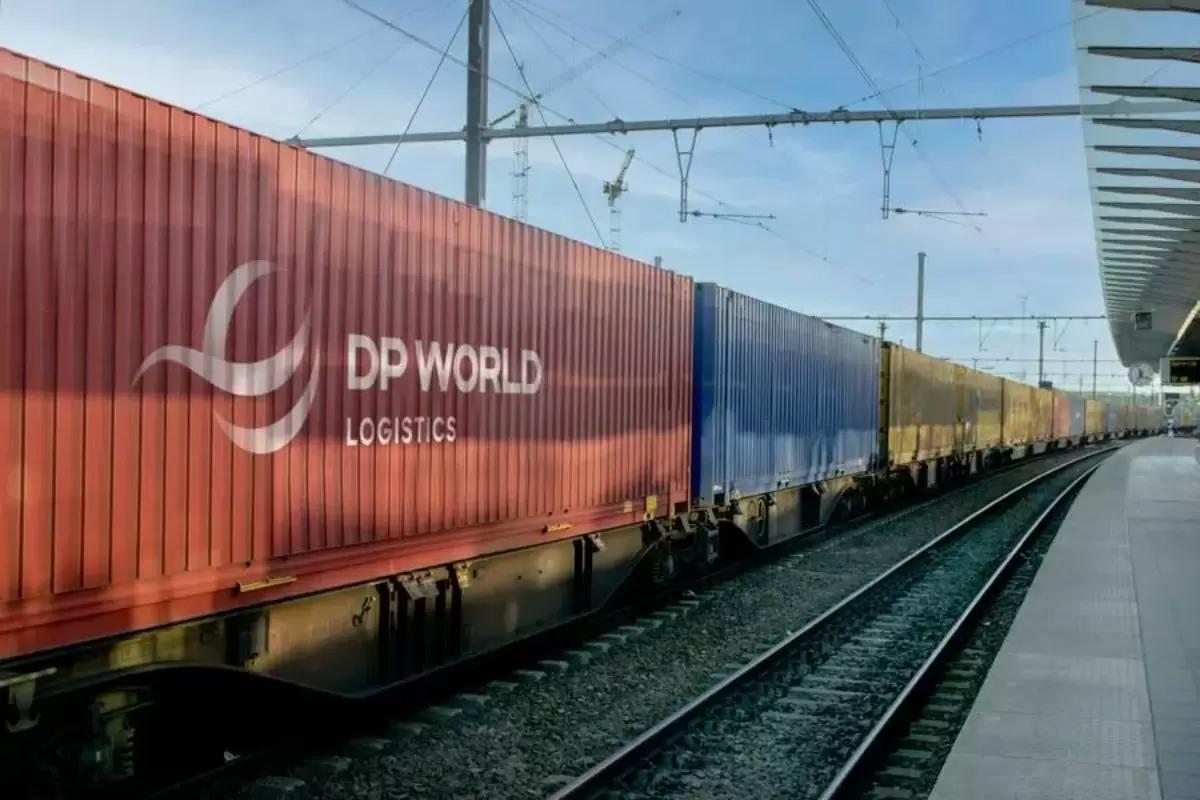
3
Sep
Bridging Land And Sea: Railway Diplomacy Enhancing Future Of Trade And Security In The Horn Of Africa
In the unfolding sphere of global diplomacy, railroads find their role as mere transshipment points for goods to become potent instruments by which states can assert their power, acquire economic autonomy, and reconfigure regional power dynamics. Even though the fact that africa lack service development which connect one to another, The Horn of Africa carries this theme into real life, with Ethiopia and Djibouti rail way and as for now Somaliland and Ethiopia rail way project that connect ethiopia to berbera port that can set to redefine regional security and trade, compete through a routing rail link potentially reinventing geopolitical objectives well beyond their borders.
This railway diplomacy extends geopolitical borders economically and militarily integrating regions such as China’s belt and road projects which notably leverages railway investment as a geopolitical instrument to increase the influence of southeast asia, africa and the central Europe. Semmering Railway is also another instance that connected Vienna to Trieste, which boosted trade, mobility, and integration within the Austro-Hungarian Empire.
It showcased Austria’s technological advancement and modern state image. While not a direct diplomatic recognition extension, it asserted territorial unification and asserted sovereignty also contributed to Austrian cultural prestige and soft power. In this case, Ethiopia has been striving to bypass dependence on the Djibouti corridor and seek MOU with Somaliland to enable sea access. Typically, such railroads promote unity, economic integration, and global visibility, state recognition renewed. We can question whether the UAE funded proposal to build railways linking Somaliland with Ethiopia be a substitute for sea access and Somaliland recognition?
In the time of ethiopia’s effort to establish its corridor, european union have made it real that ethiopia is a priority country to finance african transport port corridor with priority route connecting addis to djibouti, Bebera as well as nairobi. in 2025 European Union Commission Joint Research Center report this corridor as most suitable for infrastructure and this analysis not only report it proves that Ethiopia’s future opportunity to expand its market (Nigussie, 2025).
We can also introduce the UAE’s offer to build a billion-dollar rail connecting Ethiopia and Somaliland’s port of Bebera as a breakthrough of the Horn of Africa’s economic and geopolitical map. Stretching 250 to 310 kilometers from the Ethiopian border at Tog Wajaale to the Red Sea coast at Berebera, this railroad has the potential to overhaul trade flows, diplomatic interaction, and regional security in a manner that will not only directly benefit the immediate neighboring states but also the larger region (The Africa Plus, 2025).
For landlocked Ethiopia, whose economies have long been connected to Djibouti port, the proposed railway link from Ethiopian ground to Somaliland’s seaport city of Berbera is no new economic vein but a strategic path to diversify supply chains and gain economic resilience. Ethiopia’s near-total dependence on the corridor handling nearly hundred percent of its trade has long made it susceptible to political tensions and logistical inefficiencies. The new railway flips this script, presenting an essential opportunity valve that is set to lower costs, increase export possibilities, and drive industrial growth faster. Most prominently it’s a daring declaration of Ethiopia, claiming an explicit effort to construct multiple sea entrances, thus exercising its power in Red Sea geopolitics and beyond.
Somaliland’s aspiration is not only economic. As a player virtually unseen by the world, the infrastructure agreement with Ethiopia and the UAE elevates Somaliland from bit-player to keystone of regional commerce and security. The ability to host and operate a large strategic port and railroad project reaffirms Somaliland’s governance strength and strategic value, supporting its bid for international legitimacy in practice. Geopolitically, Berbera’s adjacency to the Red Sea makes it an optimal region of interest for sea security and naval logistics within an internationally insecure and pirated sea. Somaliland’s new exposure creates prospects for foreign cooperation, making the country an important node in the efforts to secure critical maritime routes connecting Africa, the Middle East, and Asia.
This new proposed railway road may necessarily change the status quo in Djibouti. It relieves pressure within the nation, while uniqueness is lost to Djibouti over Ethiopian trade volume, competitive entry by Berbera can potentially initiate a healthy impulse towards modernization and service excellence. Rather than diminishing, Djibouti’s strategic importance likely evolves: it may become a vital component within a multi-port regional logistics network, reinforcing its logistical and geopolitical significance tied to the Bab el-Mandeb strait.
This recalibration invites a cooperative regional framework where ports complement rather than contest each other, fostering integration that could stabilize an historically fractious Horn of Africa.
UAE can gain as already having made huge investments in Djibouti and Somaliland, the Ethiopia-Berbera rail connection is a fulcrum of the UAE strategic positioning for the control of waterside trade routes that are important in the global trade of commodities. Beyond trade, the corridor enhances military logistics and power projection capability, commending the UAE strategic goal of safeguarding shipping lanes that transport commodities across the globe.
This project is part of a larger geostrategic push by the UAE to anchor itself in one of the world’s most strategic seaborne chokepoints and transition from local investor to more important player as a facilitator of secure global trade channels.
Looking at all, this railway corridor is not just infrastructure development but a vision-bending prospect for the Horn of Africa. One-track relations breaking, it brings economic dynamism, enhances sovereignty, and enables new patterns of regional engagement. Improved port and rail infrastructures enhance regional responsiveness to shared threats like piracy and terrorism.
A peaceful but cooperative military logistics hub in Somaliland would be a zone of peace and stability, welcoming international partners willing to secure the Red Sea corridor between continents. Overall, the Ethiopia-Somaliland railway is a new step towards reimagining the strategy of the Horn of Africa. It demolishes archaic barriers, elevates political aspirations, and re-drawn the lines of influence and cooperation.
The corridor is a new generation where commerce, security, and diplomacy meet, hopeful to create an economic geography of dynamism, geopolitical balance, and regional integration. To the UAE, Djibouti, Somaliland, and Ethiopia alike, the project presents a shared interest in a more connected, secure and a rising hub which can re-model regional integration to the Middle East and to the global economy.
By Rebecca Mulugeta, Researcher, Horn Review
References
- Mintesinot Nigussie. 2025. ‘EU Eyes Major Transport Corridor Investment Linking Ethiopia to East African Ports.’ Biomertics.com,
- The Africa Plus. 2025. ‘Ethiopia and Somaliland have signed a new cooperation memorandum.’ (Tweet).X.

